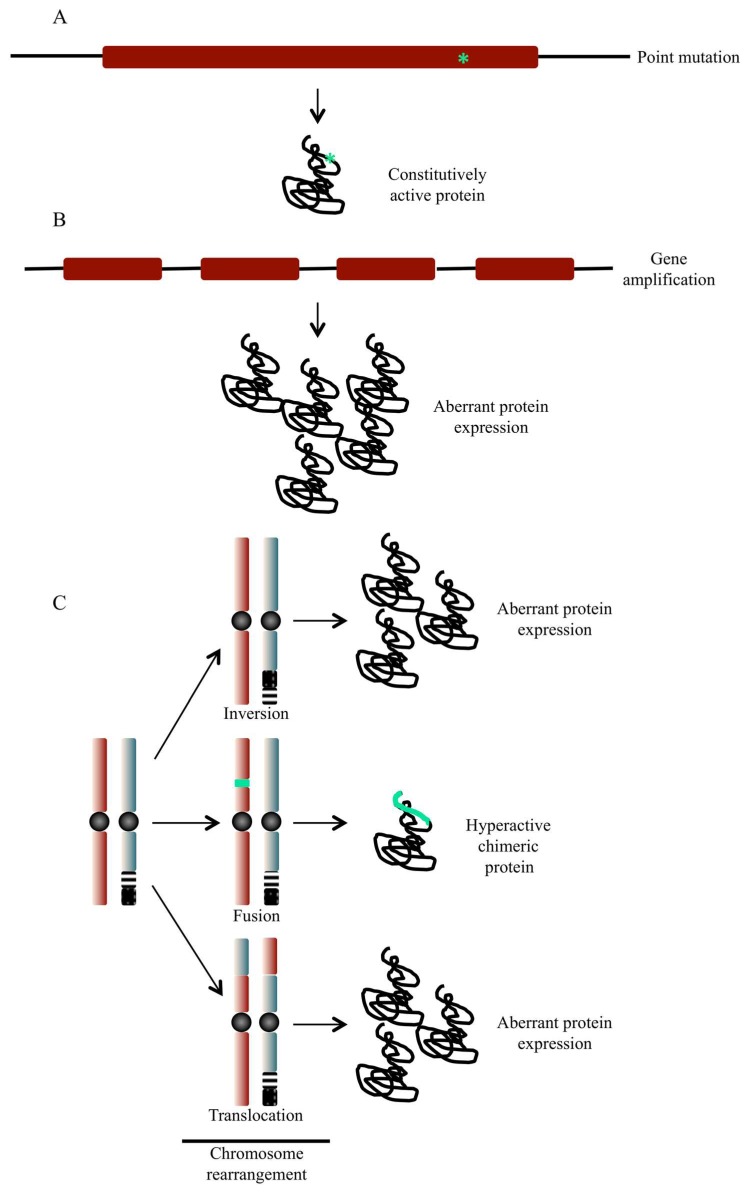Figure 2.
Possible alterations of protein kinase-coding genes and their outcome. (A) Point mutations are capable of activating a proto-oncogene product resulting in the expression of a constitutively active protein kinase. (B) In addition to nucleotide substitution, gene amplification that results from amplification of chromosomal fragments can result in aberrant expression of genes coding for protein kinases. This can result in uncontrolled activation of signalling pathways controlled by the overexpressed protein kinases. (C) Alteration in the structure of chromosomes can take several forms including translocation, inversion, deletion and insertion of genetic material. Chromosome abnormalities can result in the expression of higher levels of a protein, chimeric hyperactive proteins or loss of tumour suppressor gene products.

